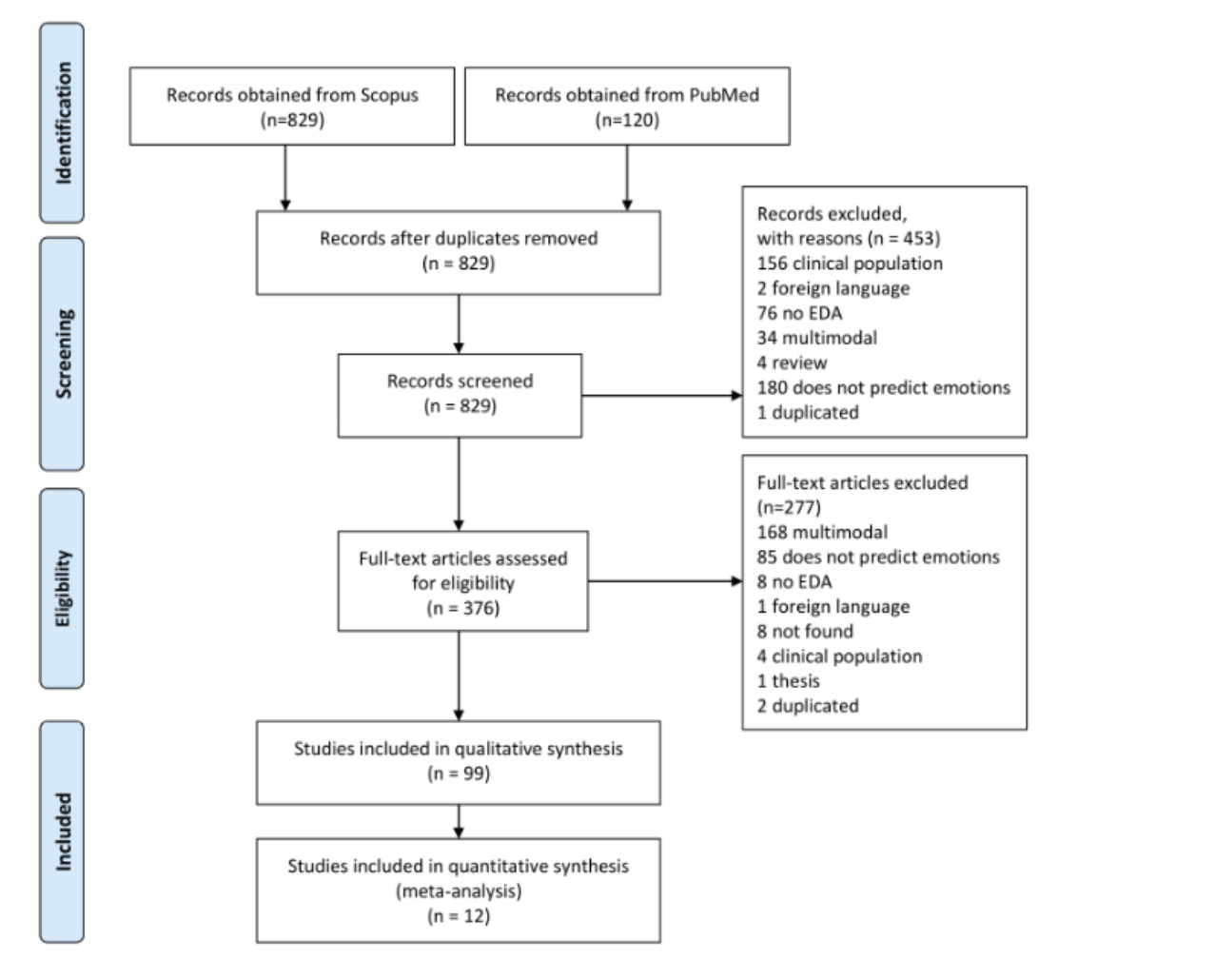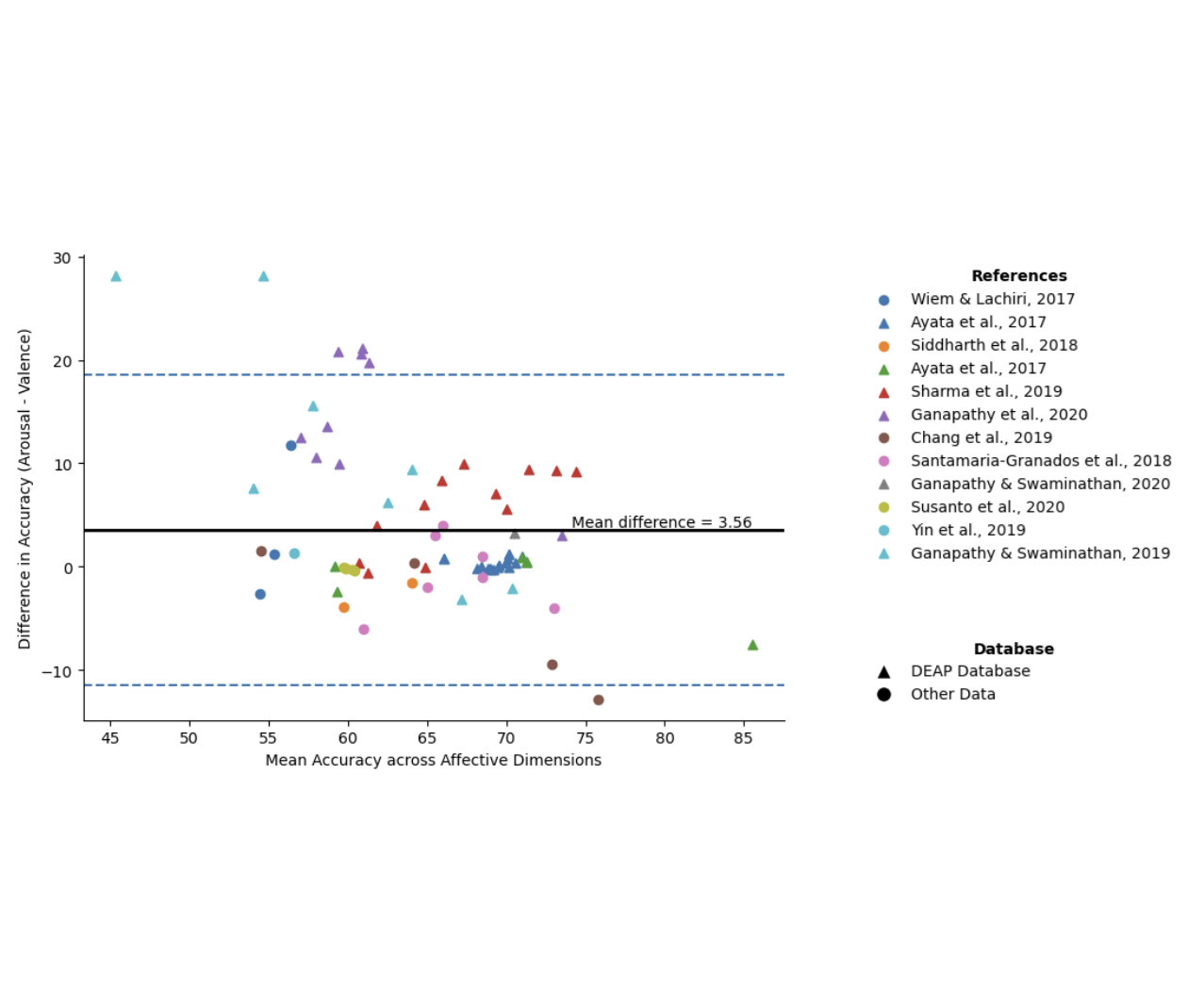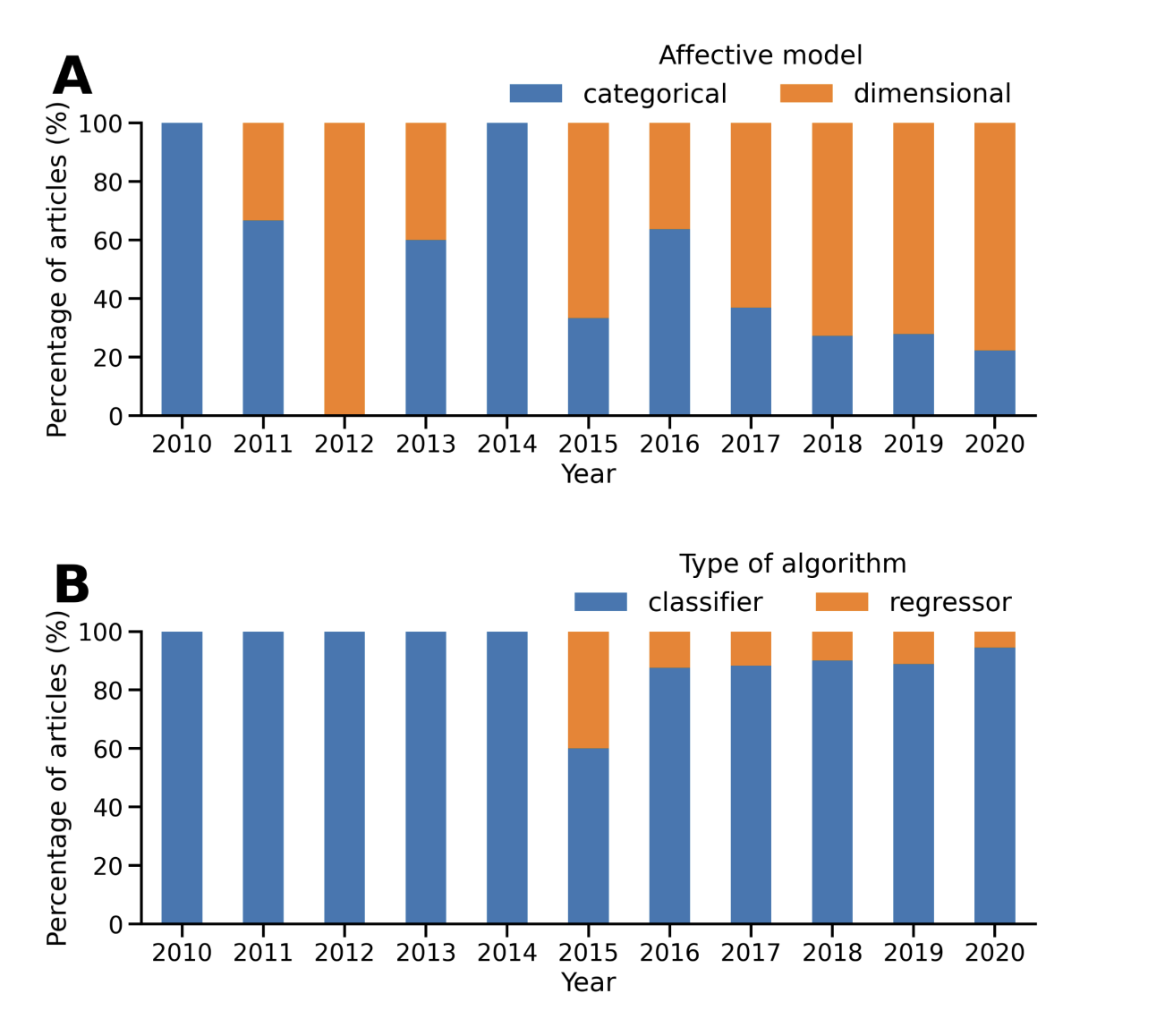Emotion Recognition Systems with EDA: From Affective Science to Affective Computing
In this systematic review and meta-analysis, we examine the existing literature on emotion recognition systems using EDA and provide a critical evaluation of the underlying emotion models used.

Our results show that models designed to predict arousal outperform those that predict valence. This is in line with our pre-registered hypothesis and is consistent with the theoretical framework that links arousal to the autonomic nervous system, making it closely related to EDA.

This study also reveals a notable disparity between the machine learning models (classification models) that are predominantly used and the emotional models (often dimensional) that are employed. Despite the growing trend towards dimensional affective models, we observe a delay in the adoption of regression models, which would be better suited to the continuous nature of emotional data.

The project highlights the need for a harmonious blend of psychological insights and computational techniques in affective computing research. Our conclusion emphasises the importance of considering both perspectives for a holistic understanding of affective states, thereby advancing the field of emotion recognition technology.
…
You can download a PDF copy of this preprint here.
